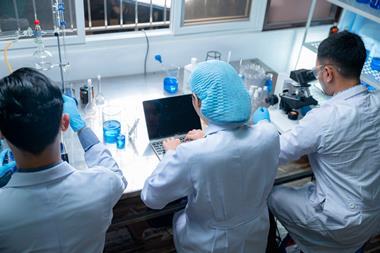Join us as we navigate the world of multidimensional spaces in data discovery methodology
Click the button below to register
and view a recording of the webinar
In research and development, the difference between slow progress and breakthrough discovery often comes down to how experiments are designed. Too often, scientists and engineers fall back on “low-dimensional foraging” – searching one factor at a time while ignoring the full multidimensional space. This instinctive approach may feel natural, but it is inefficient, misleading, and ultimately a disaster for data discovery.
Getting people to change is hard work – we’re up against millions of years of evolutionary history. The solution? Give them the right tools. Tools that are designed for exploring multidimensional spaces. And make it easier to use those tools than to return to low-dimensional foraging. Enter interactive data exploration, automation, robotics, and education.
In this session, broadcast live on 14 October 2025, we:
- Hear from Dennis Lendrem, experienced researcher and author, on the real-world pitfalls of traditional experimentation
- Watch JMP system engineers demonstrate how DOE can reveal patterns missed by trial-and-error, helping organisations innovate more effectively
- Get a brief introduction to Bayesian Optimisation — an emerging approach that can further guide experimenters to explore complex spaces more efficiently
Along the way, you’ll learn how these methods not only improve efficiency but also better align with the way scientists naturally think and explore.
This session features Dennis Lendrem – acclaimed author of Apes in Lab Coats and the newly released Gorillas in Suits – along with live demonstrations from JMP experts, engaging polls and a closing Q&A session. This event is ideal for those who want to move on from “lost in space” experimentation to a more strategic and impactful way of working.

Dennis Lendrem

Ben Barroso-Ingham

Owen Jonathan
Click the button below to register
and view a recording of the webinar

















